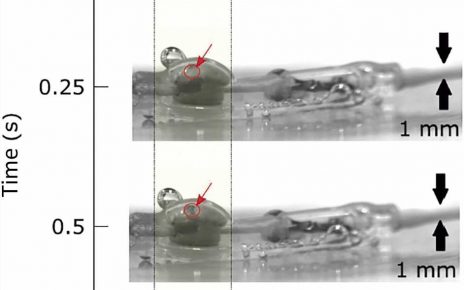Investigators at the Brigham and the Broad Institute have created specialized, tissue-like structures in the laboratory to model barrier tissues, such as the intestines, to identify new targets for treatment. Barrier tissues are exposed to substances from the outside world but serve as a layer of protection.
Over the years, researchers have developed more sophisticated, three-dimensional models of epithelial barrier tissues, such as the intestine. These models are known as intestinal organoids. In a new study, investigators discovered a tissue-modifying molecule that can target intestinal stem cells and signal them to create Paneth cells, a rare but important cell type that can alter the gut microbiota.
Previous studies have shown that Paneth cells are depleted in diseases such as inflammatory bowel disease and graft-versus-host disease. Replenishing these rare cells could represent a new therapeutic pathway. The team's approach could also be used to identify molecules that could target other intestinal cell types.
Our paper provides the first approach to engineering our barrier tissues like the intestine by targeting and activating stem cells in situ and causing new important cell types to form. This could be used to potentially treat a wide range of diseases by manipulating the cell composition of the intestine."
Benjamin Mead, PhD, Study Co-Lead Author, Broad Institute
"This approach has wide ranging implications and can be used to manipulate the cellular makeup of the intestine, including cells that can enhance barrier function, produce gut hormones, or that have key roles in coordinating insulin levels as well as food digestion and absorption," said co-corresponding author Jeff Karp, PhD, Distinguished Chair in Clinical Anesthesiology, Perioperative and Pain Medicine. "This approach also enables a completely new strategy to manipulate gut microbiota and thus offer insights into the treatment of a wide range of diseases."
Brigham and Women's Hospital
Mead, B. E., et al. (2022) Screening for modulators of the cellular composition of gut epithelia via organoid models of intestinal stem cell differentiation. Nature Biomedical Engineering. doi.org/10.1038/s41551-022-00863-9
Posted in: Molecular & Structural Biology | Cell Biology
Tags: Anesthesiology, Cell, Digestion, Food, Frequency, Inflammatory Bowel Disease, Insulin, Laboratory, Medicine, Molecule, Organoids, Pain, Perioperative, Research, Stem Cells, Therapeutics
Source: Read Full Article



